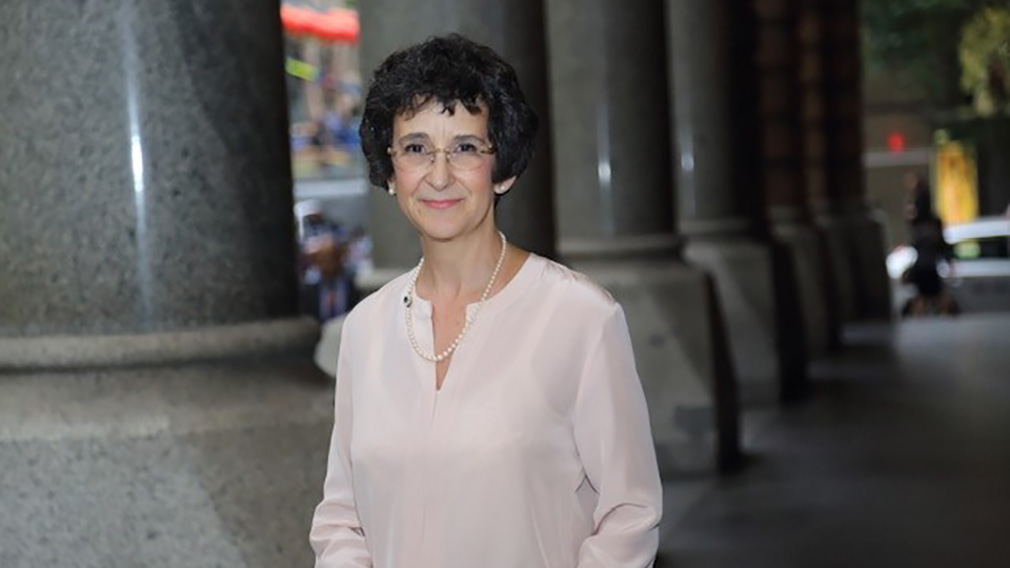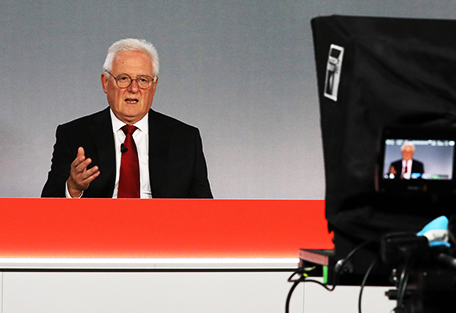‘Incredibly blessed’: Scheinkestel’s storied career rolls on

Nora Scheinkestel has been appointed an independent non-executive director on Westpac's board. (Provided)
After serving on 20-odd boards over more than two decades, Nora Scheinkestel has seen her fair share of corporate crises and transformations.
“Regrettably, though, I don’t have a magic wand,” Dr Scheinkestel, who was today appointed to the Westpac board as an independent non-executive director, says with a smile.
“But I do know it’s a grind and requires a laser-like focus and just unrelenting commitment and seeing it through,” the 60-year old adds, noting banks aren’t alone in facing fast-shifting environments, with other large, complex companies responding to similar dynamics.
Drawing on experience spanning an array of companies, including current board roles at Telstra and Brambles, and prior ones at the likes of Atlas Arteria and Newcrest Mining, Dr Scheinkestel continues: “And it’s also about making sure that as you go along, you’re able to communicate what is changing for your customers and broader stakeholder base, and non-executive directors have a role to play in this too.”
Melbourne-based Dr Scheinkestel, whose parents brought their small family to Australia from Argentina in the early 1960s, joins Westpac’s board on March 1 at a monumental time for the economy and the company.
As COVID-19 continues to loom large, new chief executive Peter King is progressing his “fix, simplify, perform” strategy after settling the case brought by AUSTRAC, complete with a new management team in place. Dr Scheinkestel, one of the nation’s most experienced company directors, also adds to the recent board renewal that’s included the addition of Chris Lynch and Michael Hawker, boosting the size of the board to 11 directors. However, it was today announced that director Craig Dunn will retire at the annual general meeting later this year, which would result in women making up 30 per cent of a refreshed 10-person board.
Despite the bank’s strategy already bearing fruit, the path ahead is unlikely to be easy.
As chairman John McFarlane said at December’s AGM when recalling 2020: “Westpac itself has also faced tough realities, particularly the shortcomings in our management of risk and compliance. Australia’s oldest company now needs to change, and fortunately, we have acted quickly. However, I know from past experience, implementing meaningful change takes time and persistence.”
Dr Scheinkestel says she was attracted to joining Westpac because of the “pivotal” role the major banks play in society as the “lubricant of the economy and an enabler of people’s dreams”. She adds that her broad experience leaves her well placed to contribute given that “we all end up putting our own constructed constraints around our thinking” based on the past.

Westpac chairman John McFarlane speaking at the bank’s AGM. (Emma Foster)
“I’ve been incredibly blessed with opportunities and worked in pretty much every sector of the economy with companies at almost every stage of development, through external and internal crises, involved in every type of corporate transaction known to man or woman, major transformation projects, huge disruption,” she says.
“So, being able to say ‘actually, I remember we dealt with a very similar issue and some of the thinking around it was X, Y and Z’, it sometimes helps break through what is otherwise this self-imposed constraint on how to look at an issue.”
She adds with another smile: “And I still have quite a lot of oomph left in me.”
Beginning her career at CRA (now Rio Tinto) after studying law, Dr Scheinkestel then joined merchant bank Hill Samuel (which became Macquarie Bank) and specialised in project and structured financing, ultimately also taking on similar senior roles at Chase AMP and Deutsche Bank as foreign banks moved into Australia following deregulation of the financial system in the 1980s. In her 30s, she completed a PhD in project financing after leaving Deutsche – finding “banks were kidding themselves thinking they were taking debt risk and not equity risk” in such deals – and stumbled into a non-executive director career at a relatively young age.
Fast forward a few decades and today Dr Scheinkestel is the most experienced female director on listed company boards, according to an Ownership Matters study last year that reportedly found she’s amassed 72.6 years at 15 companies.
“I’d never really had much awareness that there was a director career to be had,” she recalls.
“But someone that had heard me speak at a conference was a chief of staff of one of the minsters in the Kennett-Stockdale government and they’d started the corporatisation and privatisation of the utilities sector here (in Victoria).
“And so, they approached me to go on one of those boards and that was in a sense really where it started.”
Around the same time, Dr Scheinkestel also returned to the lecture theatres and classrooms she knew well from her student days at Melbourne University, firstly teaching budding lawyers before moving to the Melbourne Business School where she remains today as an Associate Professor. For the past 10 years or so, corporate governance has been one of her focal areas of teaching. It’s a topical but complex issue, with the relationship between management and boards coming under greater scrutiny in recent times.
Dr Scheinkestel remarks that there does seem to be a “never ending source of case studies of things that go wrong to talk about with students”, and has previously commented about the challenges for management in large companies to be across everything on a day to day basis, let alone the board.
Dr Scheinkestel, an associate professor at Melbourne University, says despite the challenges ahead for the economy, COVID-19’s impact has also created opportunities. (Getty)
She says challenging management – and other directors – has never been more important. Reflecting on her early days in boardrooms when often the only woman around the table, she says the improvement in diversity and inclusion by boards has helped drive better decisions, but there’s more to do.
“Diversity is a fundamental prerequisite, particularly in the world we’re living in at the moment with the degree of disruption, the speed of change that’s going on, because so much of what we do is premised on the assumptions which we carry forward,” she says.
“Diversity is the best antidote and key to optimising decision making. But it’s also about creating an environment which is really open and encourages dissent and challenging discussions. We’ve got to be prepared to change our position and that bit I think we’re still learning to do.”
So as 2021 gets underway, what are the big issues being discussed in boardrooms?
Dr Scheinkestel cites climate change, cyber security and digital disruption as high on the list, but also singles out the importance of being attuned to the “zeitgeist” and “what’s happening in societies”.
She notes the heightened anger in communities about a range of issues, such as inequality and racial injustices, and says companies these days should be completely transparent, own up to problems, fix them quickly and consider all stakeholders to retain trust.
Boards can’t only serve shareholders “or” other stakeholders, but rather shareholders “and” all other stakeholders, she says, pointing to the response when corporates “put society ahead of profit” via customer support measures during the COVID-19 pandemic.
“If you’re not considering the whole stakeholder universe, you’re going to lose your license to operate, you’re not going to be able to generate the returns to give your shareholders,” Dr Scheinkestel says, adding all boards learned from the banks’ Royal Commission experience.
“But equally if you’re not mindful of having to generate an appropriate return to your shareholders, the funders of the firm are going to pull their capital back, so you won’t have the money to address the myriad of stakeholder needs.
“I think we’ve been conscious of it for years, but we’re still learning how to do it and there are trade-offs. But clearly, understanding how we’re perceived, what we’re doing right, what we’re not doing right, how we can fix it is crucial.”
Like all directors and executives, COVID-19 remains top of mind for Dr Scheinkestel, who as a Melbournian endured Australia’s longest and strictest lockdown so far. While conceding 2021 is likely to be another “really tough year” as it takes time for vaccines to roll out and restrictions to ease, she also has a glass half full view of the situation arising from the worst pandemic in 100 years.
“There’ll be huge challenges but it’s also an enormous time of opportunity. One of the fantastic things about last year was to see the flourishing of creativity and innovation … we need to find ways to continue to encourage that,” she says.
“We’ve all got to accept we’re not going back to 2019 but hey isn’t that fantastic – this is the opportunity to shed all the practises, the attitudes, the stuff that was holding us back and remake ourselves for a new world which will be a bit scary in parts, but also I think pretty exciting.”


